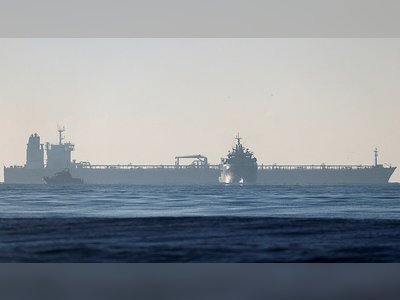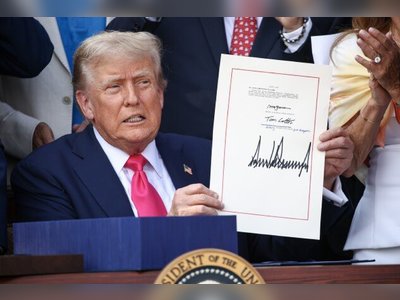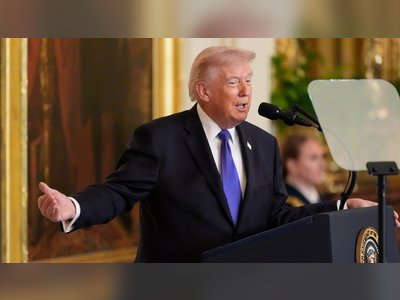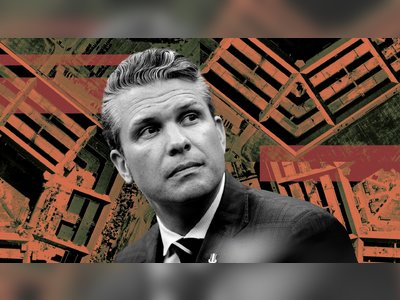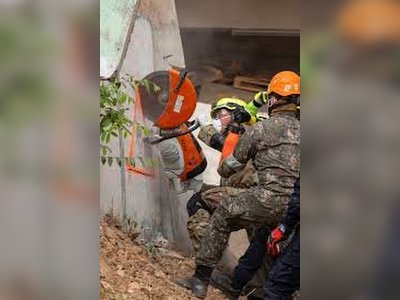Exploring the Human Toll: Europe's Struggle Against Human Trafficking
A major operation led by Germany disrupts an Iraqi crime group, but genuine resolution requires deeper structural changes.
In a daring international operation, five hundred German police officers recently launched a raid against an Iraqi crime syndicate involved in smuggling people across the dangerous Channel into the United Kingdom.
This decisive action resulted in significant arrests and seizures, marking an ambitious advance in the fight against this illegal trade.
However, a pertinent question remains: is this merely tackling the symptoms rather than addressing the root cause?
People smuggling is a deeply ingrained, malicious trade that stems from desperation and geopolitical instability.
These criminal networks do more than violate laws; they endanger human lives, often with tragic, fatal results.
Inflatable boats intended for those seeking refuge can quickly turn into makeshift coffins.
This dreadful reality prompts a vital question: Should there be a greater focus on preventative measures rather than solely punitive ones?
International raids certainly show potential, indicating a period of strong, coordinated action within Europe.
Yet, without systemic change, these efforts may provide only temporary respite.
Individuals resort to smugglers when legal avenues for migration and asylum are severely limited.
If these avenues were more accessible, the demand for illicit services might naturally decrease.
These raids temporarily disrupt criminal activities but do not eradicate the underlying causes of people smuggling.
Economic instability and ongoing conflicts are powerful driving forces that compel thousands to seek sanctuary by any means necessary.
Therefore, while the arrests are praiseworthy, they highlight the need for policy frameworks that address motivators like poverty, war, and persecution at their roots.
The European collaboration displayed in this recent operation signals a necessary progression in tackling transnational crime.
Nevertheless, it often feels like a game of whack-a-mole.
As one route is blocked, another emerges, potentially pushing smugglers towards more dangerous methods to avoid detection.
This unintended consequence risks exacerbating the very dangers such cooperation aims to alleviate.
Thus, while this coordinated effort is significant, it merely serves as a prelude to the more profound changes needed globally.
As Martin Luther King Jr. wisely stated, 'Injustice anywhere is a threat to justice everywhere.' True justice requires not only dismantling criminal networks but also creating sustainable solutions that empower those whose choices are driven by desperate circumstances.
This decisive action resulted in significant arrests and seizures, marking an ambitious advance in the fight against this illegal trade.
However, a pertinent question remains: is this merely tackling the symptoms rather than addressing the root cause?
People smuggling is a deeply ingrained, malicious trade that stems from desperation and geopolitical instability.
These criminal networks do more than violate laws; they endanger human lives, often with tragic, fatal results.
Inflatable boats intended for those seeking refuge can quickly turn into makeshift coffins.
This dreadful reality prompts a vital question: Should there be a greater focus on preventative measures rather than solely punitive ones?
International raids certainly show potential, indicating a period of strong, coordinated action within Europe.
Yet, without systemic change, these efforts may provide only temporary respite.
Individuals resort to smugglers when legal avenues for migration and asylum are severely limited.
If these avenues were more accessible, the demand for illicit services might naturally decrease.
These raids temporarily disrupt criminal activities but do not eradicate the underlying causes of people smuggling.
Economic instability and ongoing conflicts are powerful driving forces that compel thousands to seek sanctuary by any means necessary.
Therefore, while the arrests are praiseworthy, they highlight the need for policy frameworks that address motivators like poverty, war, and persecution at their roots.
The European collaboration displayed in this recent operation signals a necessary progression in tackling transnational crime.
Nevertheless, it often feels like a game of whack-a-mole.
As one route is blocked, another emerges, potentially pushing smugglers towards more dangerous methods to avoid detection.
This unintended consequence risks exacerbating the very dangers such cooperation aims to alleviate.
Thus, while this coordinated effort is significant, it merely serves as a prelude to the more profound changes needed globally.
As Martin Luther King Jr. wisely stated, 'Injustice anywhere is a threat to justice everywhere.' True justice requires not only dismantling criminal networks but also creating sustainable solutions that empower those whose choices are driven by desperate circumstances.





